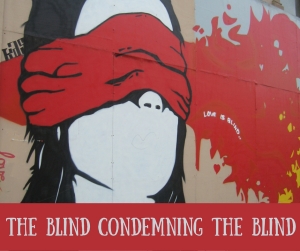This morning during my sermon I quoted this line by Julian Barnes, the author who wrote a book about living and dying as an atheist.
The whole interview is worth reading, but I pasted several questions that I felt were the most insightful. The only thing I know about him is from this interview, but based on this he appears to be the kind of thinking atheist that engages me as a respectful, honest about his own struggles, and without venom that dismisses and insults anyone who disagrees with him.
Note his beautiful description of the value of a Christian belief in the after life, the nature of saints and martyrs, and his criticism of America. Ideas to chew on.
“Q: Your first line is, “I don’t believe in God but I miss him.”
A: That’s right, yes. I just found myself saying that when I was on some public stage and someone said, “Do you believe in God?” and that was my instant response, and it was one that on reflection I thought was true. I grew up in a family where, probably from the point when my grandmother lost her Methodist faith and became a Communist—or socialist—nearly, oh, 90 years ago, there hasn’t been anything that you would call faith in the family, let alone church attendance. But, you know, when a great story ends I think we all miss it, and it was a great story. There were aspects of it that leave a sense of want. One is that if life is a mere prelude or preparation for something else, then life becomes both more trivial and more important, and if not then we can grow to our full height but that height is comparatively dwarfish. If this is all there is and this is all we are then it’s a bit disappointing.
Q: You do talk about various writers and friends contemplating death and contemplating heaven, and I can’t recall one depiction of heaven being the least appealing.
A: Well, you sound a bit like my brother. I regard myself as a rationalist, but my brother—who’s spent his life teaching ancient philosophy—is a super-rationalist and makes me seem sloppy and barely reasonable, and so part of the book is a friendly fraternal argument with my brother. He says, “I’d hate to have to spend eternity in the presence of saints and martyrs,” and I say, “Well, actually, saints weren’t just pious, boring fellows. They were often at the cutting edge of social change and they had often very interesting deaths, as well. And in medieval times they’re probably some of the most intelligent, sophisticated people on the earth. After all, Dom Pérignon—after whom the champagne is named—was a monk.” I don’t see why you should think that heaven must be infinitely boring.
Q: You write elsewhere that we have replaced our traditional ideas of heaven with a secular, modern heaven of self-ful?llment, where it all comes down to development of the personality and having a high-status job and pursuing material goods, which sounds, relative to what you’ve described, rather grim.
A: I think as modern society has become more secular we sell ourselves a sort of junior version of paradise. We too often need someone else to define what it is that we want, and in the old days religion did that for us, and nowadays it’s multinational corporations trying to sell us stuff, or tone our bodies, or make us forget about death, so I don’t think it’s a substantial improvement.”
Source: Maclean’s Interview: Julian Barnes – Macleans.ca







